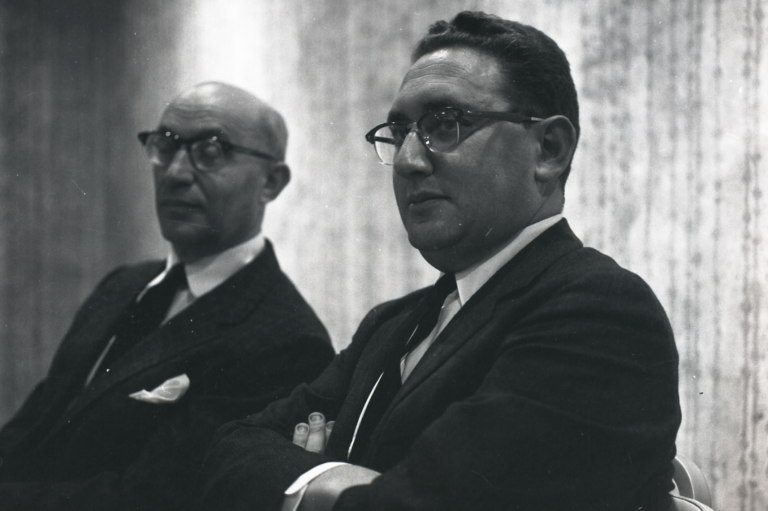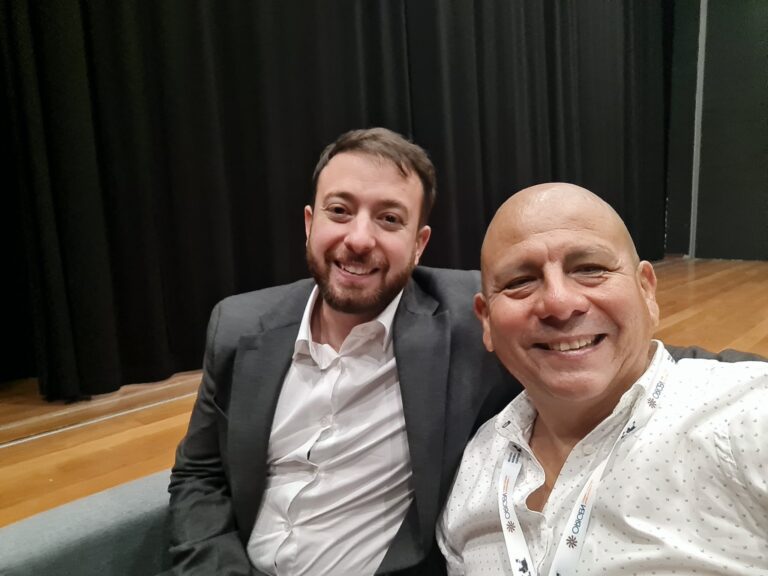The history of abortion is plagued with lies. Sometimes we get surprised at how big pro- abortion lies can be. However, simple reasoning can tell us it has to why it has o be that way. It is hard to transform the murder of an innocent unborn baby into something that someone could accept as a good choice. Pro-lifers face these lies everyday. Our friends in El Salvador have given us a terrific lesson of how to overcome lies with the truth.
On April 9, 2006, the lead article of the weekly New York Times Magazine, entitled “Pro-life Nation,” stated that El Salvador has hardened her legal attitude against abortion since 1997. A woman had been sentenced to 30 years imprisonment for having an abortion — or so it claimed. As an illustration of his investigation, freelance journalist Jack Hitt writes about his meeting with Carmen Climaco in jail and concludes, “She had had a clandestine abortion at 18 weeks of pregnancy … something defined as perfectly legal in the U.S. The problem is that she had an abortion in El Salvador.”
Error Exposed
Eight months later this phrase was rejected by NYT public editor Byron Calame, who is responsible for answering the complaints from Times readers. In the article “Truth, Justice, Abortion and the New York Times Magazine,” published on December 31, Calame recognized that the journalist did not have the judicial documents of the Climaco case. For Calame, this constituted lack of due diligence in Hitt’s work. This error could have been avoided if the editors or the NYT had requested the juridical documentation backing up the statements of Hitt, but they did not do so. A week later, the New York Observer revealed that the NYT is planning to forgo the services of Byron Calame when his current contract as public editor expires and perhaps do away with the public editor job altogether.
Calame’s article was published in response to readers, complaints, who, through the website LifeSiteNews.com, became aware that Climaco had not been condemned for an abortion, but for having strangled her baby girl, born alive after forty weeks of pregnancy. The editors of this website obtained access to the juridical documents, something that Hitt had not done.
In his article, Jack Hitt presented Climaco as a desperate woman, mother of three children, whose own mother had threatened to expel her from the home if she got pregnant again. What Hitt omitted was the force that Climaco applied to the neck of the infant.
Cybernetic Swindle
The report “Pro-Life Nation” not only was based on false information, but was used by Planned Parenthood offshoot IPAS to organize a campaign to collect funds through the Internet between April and December of 2006.
“You can help Carmen Climaco and other women like her. With your donation the office of IPAS in Central America, which enjoys recognized prestige, can provide Carmen with the judicial representation that she deserves,” states the group and promised Carmen Climaco would be helped to get out of jail and travel to the United States.
The campaign was suspended once the New York Times got in touch with IPAS to get information on the case. According to Hitt himself, his report on the sentence of 30 years imprisonment was based on a translation provided by an IPAS collaborator.
El Diario de Hoy, one of the major newspapers in E1 Salvador, carried out a deep investigation with complete coverage. The newspaper also attempted to obtain the official position on this controversy of the branch of IPAS based in Managua, Nicaragua. The assistant of Dr. Marta Maria Blandon, director of IPAS Central America, stated that her boss was not in town. In addition, she said that only Blandon could make statements about Climaco’s case, and about the kind of assistance that the organization provides to the Maternity Hospital of El Salvador. Eventually, Blandon issued some unhelpful statements.
Attack on El Salvador’s Values and Sovereignty
Julia Regina de Cardenal, President of the “Yes to Life Foundation,” wrote an open letter to the media and media-monitoring groups in the United States claiming this was a clear and unfair attack against her nation. Cardenal denounced the questionable relationship of Hitt with individuals linked to a pro-abortion organization which later used this article published by the NYT to try to raise money for its own purposes. A certain Judge Sanabria, a major source for background information and interviewed by Hitt for the article, had been publicly recognized for her assistance to IPAS. Hitt’s piece did not mention this relationship. In addition, Sanabria spoke to the NYT but refused to speak to the Salvadoran press after questions were raised.
“We have plenty of problems in our country. Fortunately, a problem we don’t have in El Salvador is a legal system that allows and even facilitates a mother killing her own child. We hope El Salvador will he left alone, so we can solve our problems without outside interference, and find positive, life-enhancing solutions, not the death-dealing some want to impose from outside,” said Cardenal.










